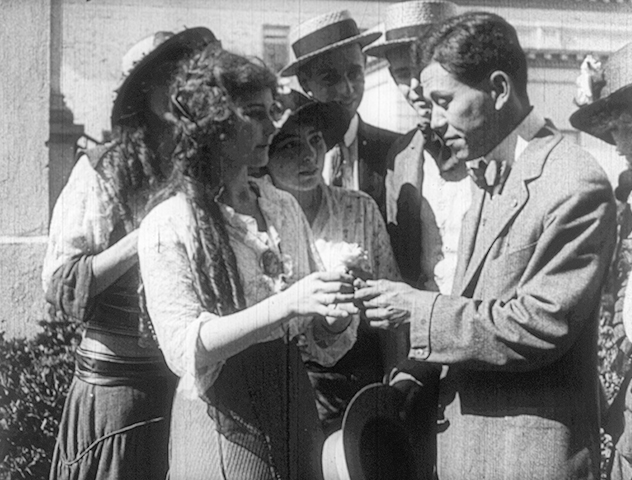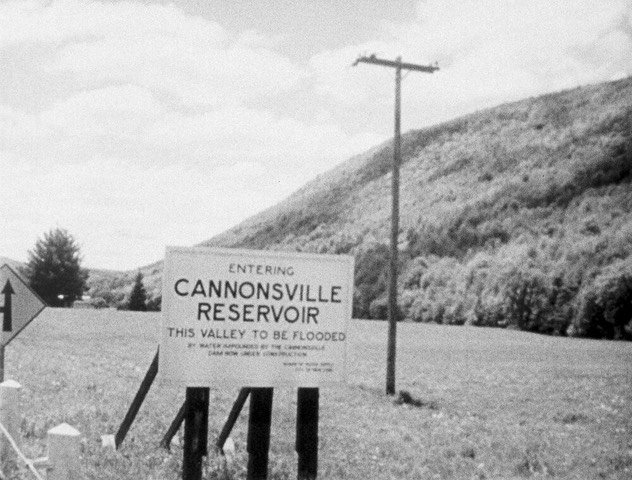64 Orphan Films to be Preserved Through the NFPF’s 2021 Grants
 |
|
Oath of the Sword (1914) will be preserved by the Japanese American National Museum with NFPF support. (Courtesy of George Eastman Museum)
|
Two of the films are notable for illuminating the multicultural and transnational aspects of early American cinema. Santa (1932), to be preserved by the Paso del Norte Foundation, is a melodrama directed by Spanish American silent star Antonio Moreno and produced by Azteca Films, a company based in El Paso, Texas, that made some of the most acclaimed Mexican movies during the 1930s–50s. Santa was one of the first Mexican features with recorded dialogue, and its soundtrack survives in its most complete form on Vitaphone discs.
The Oath of the Sword (1914), a silent drama by the Japanese American Film Company, featuring an all-Japanese leading cast, is likely the earliest Asian American production. A tale of lovers separated when an ambitious young man leaves his beloved in Japan to study abroad at the University of California, this three-reel drama features one of the first onscreen appearances of Yutaka Abe, who went on to appear in Cecil B. DeMille’s The Cheat (1915) and became a director after returning to Japan in 1925.
Denise Khor, an Assistant Professor in the American Studies Department at the University of Massachusetts Boston and author of Transpacific Convergences: Race, Migration, and Japanese American Film Culture before World War II (forthcoming UNC Press), located the sole surviving copy of The Oath of the Sword at the George Eastman Museum during her research. She approached the NFPF about preserving the film through a partnership between GEM and the Japanese American National Museum. “This collaboration,” Professor Khor remarks, “will make publicly available a vital, hidden chapter in the self-representation of Americans from marginalized groups.”
 |
|
Indian Summer (1960) will be preserved by the Delaware County Historical Association with NFPF support. (Courtesy of Charles Cadkin)
|
Further highlights of the 2021 grants include Indian Summer (1960), a documentary with music by Pete and Mike Seeger on the construction of New York’s Cannonsville Reservoir and displacement of local communities; it will be preserved by the Delaware County Historical Association. The National Museum of African American History and Culture will supervise the preservation of Morris (1971), an experimental short edited by pioneering African American filmmaker and community activist Hortense “Tee” Beveridge. Fresh Kill (1994), an avant-garde activist feature directed by Shu Lea Cheang, featuring Karen Finley and an all-woman camera crew, will be saved by New York University. George Eastman Museum will preserve the only print of The Millionaire Vagrant (1917), a silent drama about a millionaire who decides to live on six dollars a week, starring Charles Ray, Sylvia Breamer, and John Gilbert. A Matter of Respect (1980), an educational film on teenage pregnancy, was produced by Blackside Inc., the company that made Eyes on the Prize and whose archive is held by Washington University in St. Louis.
Experimental cinema is also well-represented this year. Yale University will preserve the first film made by a female undergraduate there: End of the Art World (1971), a documentary by Alexis Krasilovsky featuring Andy Warhol, Michael Snow, and Robert Rauschenberg. The Innerview (1972), a dreamlike psychedelic feature directed by and starring Richard Beymer, will be preserved by Northeast Historic Film. Also to be saved are shorts by alternative cartoonist Heather McAdams, Destructivist artist Raphael Montañez Ortiz, and San Francisco Bay Area filmmakers Toney W. Merritt and Craig Baldwin.
 |
|
Morris (1971) will be preserved by the National Museum of African American History and Culture, Smithsonian Institution with NFPF support.
|
Since its creation by Congress in 1996, the NFPF has provided preservation support to 323 institutions across the country to saved more than 2,613 films. Its grants—which provide support to create a film preservation master and two access copies of each work—are made possible by funds authorized through The Library of Congress Sound Recording and Film Preservation Programs Reauthorization Act of 2016—secured through the leadership of the Library of Congress—and the contributions of public-spirited donors. A curated selection of the preserved films is available for viewing on the NFPF website, and more than 250 additional titles have been made accessible by our grant recipients.
